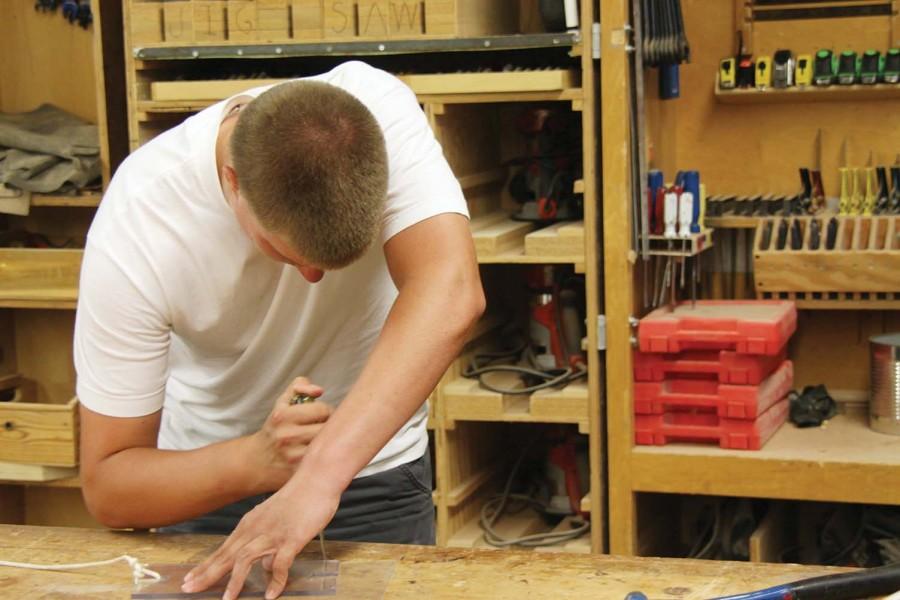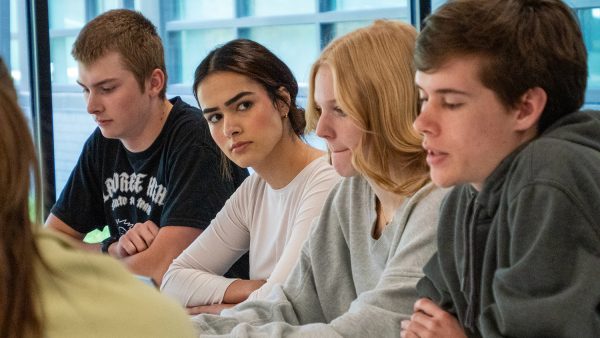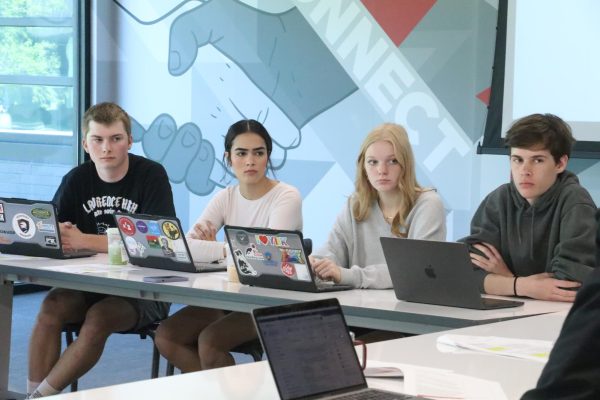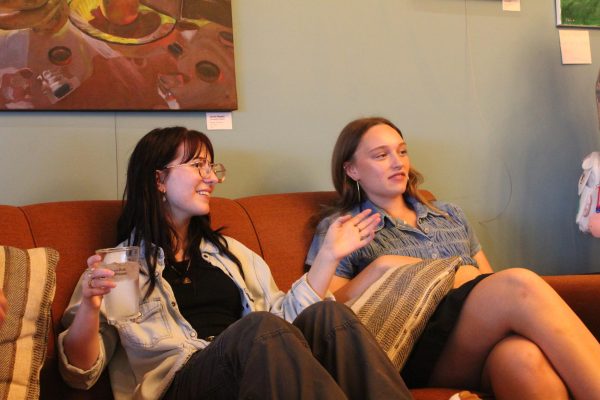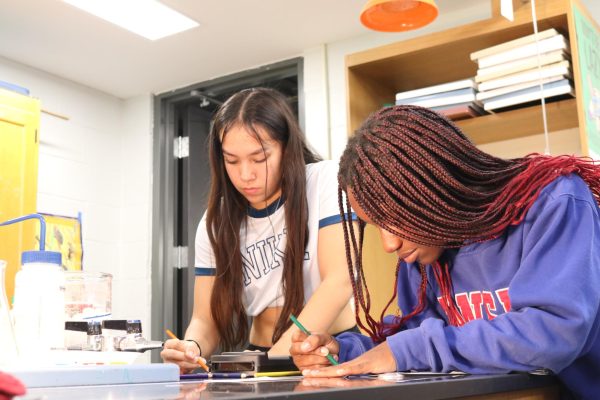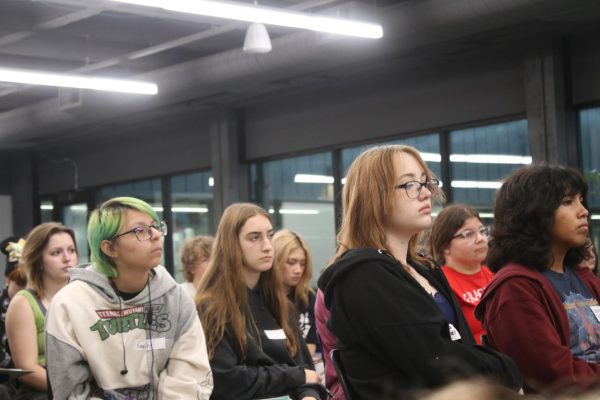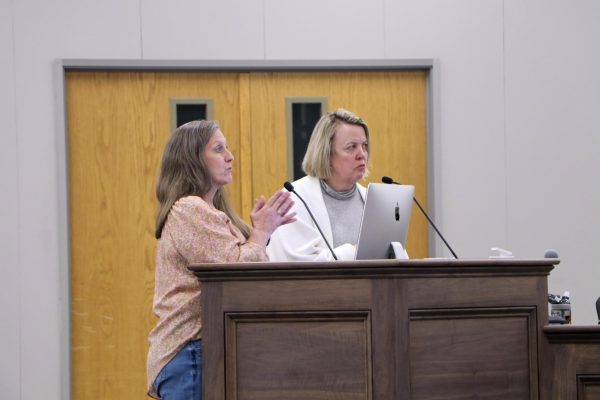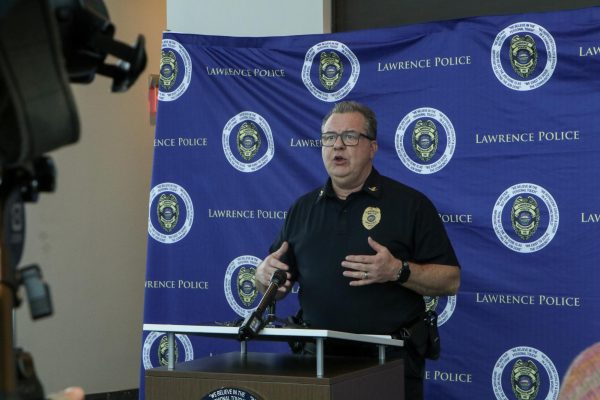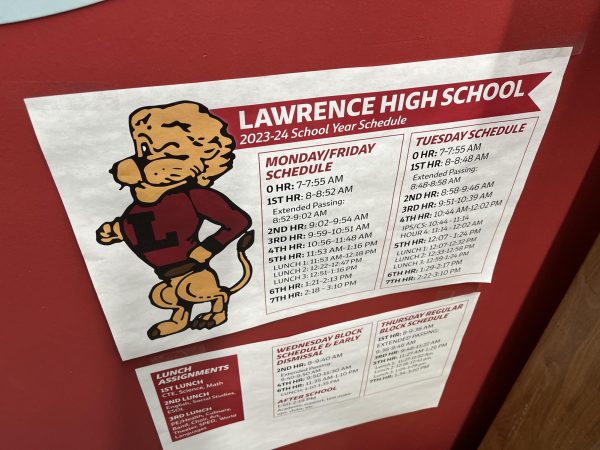Students to get more options
Students will have new career opportunities at planned building
Working on a project, senior Adam Eudaly is taking Jay Hundley’s cabinetry class. Students in career and technical education classes will have more opportunities when the new Career and Technical Education Center opens next year.
Next year, high school students will have a new opportunity to kick start their college and professional careers.
Juniors and seniors will soon be able to take classes and earn professional certifications at the new Career and Technical Education Center, a joint venture between USD 497 and Lawrence professional industries.
Ground will break on Thursday, Sept. 18 at 31st and Haskell. The center will offer career training centered around STEM (Science, Technology, Engineering and Mathematics) industries.
“I believe that the curriculum will be engaging and based on student interest,” career and technical education director Patrick Kelly said. “It’s all extremely project based. It works in professional-based learning where students will be working with employers on projects. Additionally, students who are able to take college credits early will benefit from it, and I’m really excited that we’re able to offer that.”
The main goal of the center is to give students the chance to take advantage of new opportunities to earn college credit and professional certification. While similar programs exist throughout the country, including in Blue Valley and Olathe, the classes will still give students an overall advantage in the job force.
“It’s going to be amazing for the students who participate because it’s going to get them over-prepared, which can never be a bad thing,” engineering and architecture teacher Charlie Lauts said. “For the employees and employers that are out here that are going to be able to hire kids right after they graduate.”
The center was spurred by programs and laws enacted in the past few years as well as the $92.5 million school bond issue approved by voters in 2013.
A 2012 state law created the Certification Incentive Program, which aims to have high school students graduate with industry-recognized certifications. Those certifications prepare students for high-demand occupations in Kansas that don’t require a degree from a four-year college.
Additionally, the bill aims to have students get more college credit during school hours without having to pay the tuition that colleges charge. The school district built on that foundation when voters approved the 2013 bond issue, which included funds for the new center.
“I think it will give our high school students something that differentiates them from other students when they apply to college,” Kelly said. “They’ll have real-world, work-based experience, which will give them a leg up on others.”
Additional motivation sprouted from local companies feeling that graduates are under-trained.
“It will improve the overall talent base that we have here in our community, not only for our high school students but for adults as well,” Kelly said.
The center aims to open the eyes of students to larger possibilities.
“I think the students will discover that high school is the tip of the iceberg,” Lauts said. “They’re going to get really good at a lot of things but that will open doors for more things. Maybe there’s that kid who thinks he’ll go to work right out of high school into the manufacturing business to run the machines, but what I think that they’ll realize is that ‘Hey, if I go to college, I won’t have to run the machines, I’ll be able to run the floor.”
The concept of off-campus training is not foreign to the district. The school district has used the culinary program as a prototype for the way classes at the center will be scheduled. Currently, culinary students schedule either first through third hours or fifth through seventh hours at Holcom to allow time for training.
Classes offered allow students to continue following the career pathways already set in elective courses such as pre-med and manufacturing processing. The classes will also answer a common question: Why do I need to learn this?
“At the career center, they’ll be doing things that real people do for their jobs,” counselor Natalie Konkel said. “It’s going to make that learning connection so much stronger for a teenager who wonders why they need to learn those things.”

Student. Journalist. Capricorn. My name is Kansas and I'm a senior at Lawrence High. I work at a local European imports shop, but basically just sell candy...

Hi, I'm Cooper, and I'm a senior and current photo editor of the Red and Black yearbook. In my spare time, I work at Noodles and Company and play drums...



